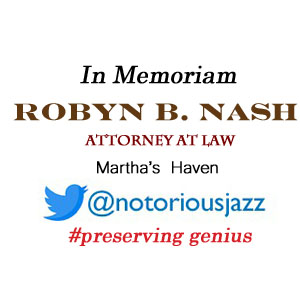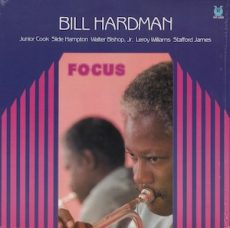
Requisites
Focus ~ Bill Hardman | By Eddie Carter
This morning’s discussion is a terrific album by Bill Hardman. Focus (Muse Records MR 5259) is his fourth release as a leader, and a hidden gem in his catalog. Bill was born and raised in Cleveland, Ohio, where his jazz journey began playing with Tadd Dameron while in high school, and after graduating, with Tiny Bradshaw. His first recording with Jackie McLean in 1956 marked the beginning of a career that, although not widely known, earned deep respect in jazz circles for his exceptional trumpet and flugelhorn performances. On this album, Bill’s trumpet is joined by Slide Hampton on trombone (tracks: A2, A3, B1, B3), Junior Cook on tenor sax, Walter Bishop Jr. on piano, Mark Elf on guitar (B2), Stafford James on bass, and Leroy Williams on drums. My copy is the 1980 U.S. stereo release.
Side One is off to the races with Avila & Tequila by Hank Mobley. Leroy opens with a spirited introduction, accompanied by Walter and Stafford, setting the stage for the ensemble’s collective theme. Bill soars through the opening solo energetically. Junior’s following statement is brimming with dynamic energy. Walter maintains the vigorous momentum next, and Leroy charges the finale in a short workout, culminating in the theme’s reprise and fadeout. The sextet eases into the medium melody of Cubicle by Walter Bishop Jr. Bill gets into a good groove on the lead solo. Slide has an outstanding moment before Junior takes over to put his ideas into practice. Walter wraps it up before the restatement and exit.
Up next is Bill Lee’s Too Little, Too Late. The sextet’s medium-tempo introduction and melody start things off. Bill gets things going with a relaxing interpretation, then Slide moves with unhampered ease in the following solo. Junior jumps into a short, articulate statement next, and Walter wraps things up with a satisfying conclusion, preceding the closing chorus. The title tune, Focus by Tadd Dameron, changes the direction to begin the second side with the ensemble’s upbeat introduction and theme in unison. Slide steps up first to give a lively solo. Junior glides over the rhythm section with agility and skillful confidence next, then Bill attacks the following reading with virile lyricism. Walter continues conveying happy thoughts on the piano, and Stafford takes a short walk leading to the ending theme.
My One and Only Love by Robert Mellin and Guy Wood begins with Walter’s introduction, setting the mood for Bill’s tender melody with Junior shadowing him as it unfolds. Junior tells a touching story in the opening statement, then Mark delivers notes of great beauty in his only solo spotlight. Bill follows with a passionately haunting interpretation preceding his return to the gentle ending theme and soft climax. Minority by Basheer Qusim takes off like a race car with Leroy leading the sextet into a speedy melody. Bill goes to work first with a spirited solo, then Junior cooks at the right temperature. Slide infuses the following reading with riveting urgency. Walter builds the following statement exquisitely, and Leroy shines in a short workout before the melody’s restatement and finale.
Fred Seibert produced Focus, and the recording engineer was Fred Miller. The album is a joy to listen to, with a superb soundstage that brings the musicians to the sweet spot in your listening room with stunning fidelity. Bill Hardman recorded only five albums as a leader, but his discography as a sideman is extensive, including with Art Blakey and The Jazz Messengers, Lou Donaldson, Charles Mingus, and Horace Silver. He also co-led a group with Junior Cook but ultimately remained little known to the general public. He died on December 6, 1990, from a brain hemorrhage at age fifty-seven. If you’re a hard bop fan, I invite you to check out Focus by Bill Hardman on your next vinyl hunt. It’ll reward you with many hours of listening pleasure, especially if you’re a fan of jazz trumpet!
~ Jackie’s Pal (Prestige PRLP 7068) – Source: Discogs.com
~My One and Only Love – Source: JazzStandards.com
© 2025 by Edward Thomas Carter
More Posts: choice,classic,collectible,collector,flugelhorn,history,instrumental,jazz,music,trumpet
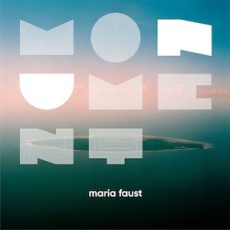
Daily Dose Of Jazz…
Maria Faust was born on April 18, 1979 in Kuressaare,, Estonia. Growing up under the Communist regime she was classically educated, and at the conservatory there, she didn’t feel that there was room for her, musically. Yearning for something different in Tallinn, jazz and improvisational music took hold of her, but in order to develop further, she had to leave the country. With the help of the Danish Cultural Institute, she came to the Southern Danish Music Conservatory. Even in her new surroundings, she felt she did not fit into the world of jazz.
She plays and composes in non-traditional ways, and her big breakthrough came with her album, Sacrum Facere, which is Latin for human sacrifice. It was inspired by the culture of deported orthodox Russians. With collected work songs, hymns, and lullabies she merged the material with classical music and free improvisation. The album received universally positive reviews, and received two Danish Music Awards in 2014 for Jazz Composer of the Year and Jazz Crossover Release of the Year.
She has worked with John Parish and Mark Howard. She tours western Europe, the Balkan Peninsula, South America, China, and Russia. Saxophonist Maria Faust, who has recorded nine albums as a leader, continues to push the boundaries of music.
More Posts: bandleader,bass,cornet,history,instrumental,jazz,music,trombone
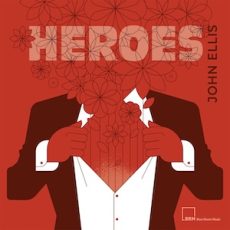
Daily Dose Of Jazz…
John Axson Ellis was born on April 13, 1974 in North Carolina and learned clarinet and piano as a child. During the Nineties in New Orleans, Louisiana he studied with Ellis Marsalis and performed with Brian Blade and Nicholas Payton.
Independently releasing his debut album Language of Love in 1996, he went on to receive a music degree from the New School in New York City and won second place in the 2002 Thelonius Monk Institute of Jazz International Saxophone Competition. John traveled to Africa as a cultural ambassador for the United States Information Agency.
With playwright Andy Bragen, Ellis composed the theatrical works Dreamscapes, The Ice Siren, and Mobro. An album version of The Ice Siren with Gretchen Parlato on vocals was released in 2020.
Ellis has performed with the group Doublewide with Jason Marsalis, The Holmes Brothers, John Patitucci, and Miguel Zenón. He has recorded thirty-seven as a sideman with Charlie Hunter, Anne Mette Iversen, Kat Edmonson, Kendrick Scott, Ben Sidran, Lonnie Smith, Darcy James Argue, Will Bernard, Laila Biali, Erin Bode, Sean Costello, Caramelos de Cianuro, Gilfema, Robert Glasper, Jon Gordon, Norah Jones, Kathy Kosins, Michael Leonhart, Mike Moreno, Igor Lumpert, Eric Revis, Robert Sadin, Kate Schutt, Leo Sidran, Edward Simon, Sting, and Helen Sung.
Tenor saxophonist John Ellis, who recorded nine albums as a leader or co-leader, continues to perform, record and tour.
More Posts: bandleader,history,instrumental,jazz,music,saxophone

Daily Dose Of Jazz…
Leah Stillwell was born on April 12, 1976 and raised in Western Washington. She was initially influenced by the diverse flavors and talents of the local jazz community. Her inspiration came from the greats and fell in love with jazz immediately once introduced as a teen to the satin melodies of classics like Ella Fitzgerald, Sarah Vaughan and Billie Holiday.
Her vocal style is a personal amalgamation of the old standards along with other music that has ever appealed to ear, heart and soul. With a fresh new approach to a classic art form, Leah captures the style and charisma of jazz with her sultry voice and laid back expression.
Vocalist Leah Stillwell continues to perform and tour.
More Posts: bandleader,history,instrumental,jazz,music,vocal
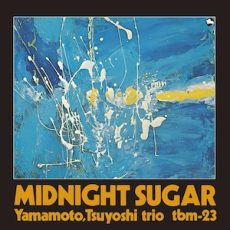
Requisites
Midnight Sugar ~ Tsuyoshi Yamamoto Trio | By Eddie Carter
This morning’s choice from the library is one of my absolute favorites because each time I hear it, I’m transported back to one of my happiest memories as a young adult. If any of you lived in Cleveland, Ohio during the seventies and eighties, Audio Craft at 3915 Carnegie Avenue was the place to go if you wanted to purchase a quality entry-level, mid-level, or high-end audio system. My uncle Bob Franks was the manager there for many years and I got to help him on Monday and Thursday evenings, and each Saturday. He was instrumental in teaching me about excellent audio equipment, helping me put together my first system, and introducing me to The Tsuyoshi Yamamoto Trio.
Midnight Sugar (Three Blind Mice TBM-23) is the group’s 1974 debut for the Japanese jazz label and has long been a favorite to demonstrate high-end audio equipment at audio shows and audio salons worldwide. It’s also become a collector’s item, a mint original LP or the 1977, 1979, and 1982 Stereo reissues can cost a few hundred dollars. Joining the pianist are two giants in their own right, Isoo Fukui on bass and Tetsujiro Obara on drums. My copy used for this report is the 1977 Japanese Stereo reissue (Three Blind Mice TBM-2523) and LP collectors take note. Only the 1977, 1979 (TBM(P)-2523) and 1982 (Trio Records – Three Blind Mice PAP-2006) reissues list the group’s name as Tsuyoshi Yamamoto Trio. All other LP reissues and the original release show the pianist’s last name first.
Midnight Sugar is a slow tempo blues beginning Side One with a brief bowed bass introduction by Isoo before Yamamoto takes over on the melody. Tsuyoshi is the only soloist and is at his best on a lengthy interpretation that’s sublimely soulful and one of the highlights on the album, thanks to the rhythmic harmony provided by his colleagues. I’m A Fool To Want You was written in 1951 by Frank Sinatra, Jack Wolf, and Joel Herron. Sinatra recorded the song for Columbia Records, making it a hit. It opens with a graceful introduction and wistful delivery of the melody. The pace moves to midtempo for Yamamoto’s solo performance and he responds with a mesmerizing display and emotional depth preceding the closing chorus ending with fingertip delicacy.
The Nearness of You starts Side Two and was written in 1937 by Hoagy Carmichael and Ned Washington. It became a hit for Ray Eberle who recorded it with The Glenn Miller Orchestra in 1940. The trio dresses up this timeless evergreen with a blissful theme treatment and a sentimental swing on the song’s only interpretation by Yamamoto drawing the listener into this beautiful standard at a leisurely pace. It Could Happen To You is by Jimmy Van Heusen and Johnny Burke, this popular song was written in 1943 and was first recorded by vocalist Jo Stafford with the Paul Weston Orchestra. Its first film appearance was in the 1944 musical comedy And The Angels Sing. The trio’s interaction is stunning on the dreamy melody. Tsuyoshi’s reading is skillfully constructed with tender lyricism on one of the most beautiful ballads ever written.
The album closes with Yamamoto’s Sweet Georgia Blues, an uptempo original sharing some similarities with the 1925 jazz and pop classic, Sweet Georgia Brown by Ben Bernie, Ken Casey, and Maceo Pinkard. It opens with a vivacious theme by the trio, then a brief comment preceding Obara giving a short workout of explosive fireworks. Tsuyoshi wraps up the album with a few final remarks of fun leading to the lively closing chorus.
Three Blind Mice began in 1970 with the premise of showcasing emerging jazz artists. The label produced one-hundred thirty albums over thirty years and was known for their outstanding sound. TBM also was instrumental in the development of Japanese jazz. Many of the stars from Japan now known around the world recorded their debut albums on the label. The album was produced by Takeshi Fujii who ran TBM for many years and recorded by Yoshihiko Kannari, the distinguished Japanese engineer who worked for TBM at the time, and now runs his own organization, Studio Lion since 2000.
The sound on Midnight Sugar is spectacular and a perfect choice to demonstrate any mid-level or high-end audio system. Your sweet spot is right in the studio with the musicians because of the incredible lifelike detail coming from the piano, bass, and drums. Tsuyoshi Yamamoto has an incredible discography of music, is still performing today and all of his albums on Three Blind Mice are worth occupying a spot in your library. If you’re looking for a jazz trio album for the library or are a fan of piano jazz specifically, I happily submit for your approval, Midnight Sugar by Tsuyoshi Yamamoto Trio. An album that’s quite a value for the music, sound quality, and a title that’ll provide its owner many hours of listening pleasure.
~ I’m A Fool To Want You (Columbia 39425); It Could Happen To You (Capitol Records 158); ~ The Nearness of You (Bluebird B-10745) – Source: Discogs.com
~ It Could Happen To You, The Nearness of You – Source: JazzStandards.com
~ I’m A Fool To Want You, Sweet Georgia Brown, Three Blind Mice – Source: Wikipedia.org
© 2021 by Edward Thomas Carter
More Posts: choice,classic,collectible,collector,history,instrumental,jazz,music,piano



